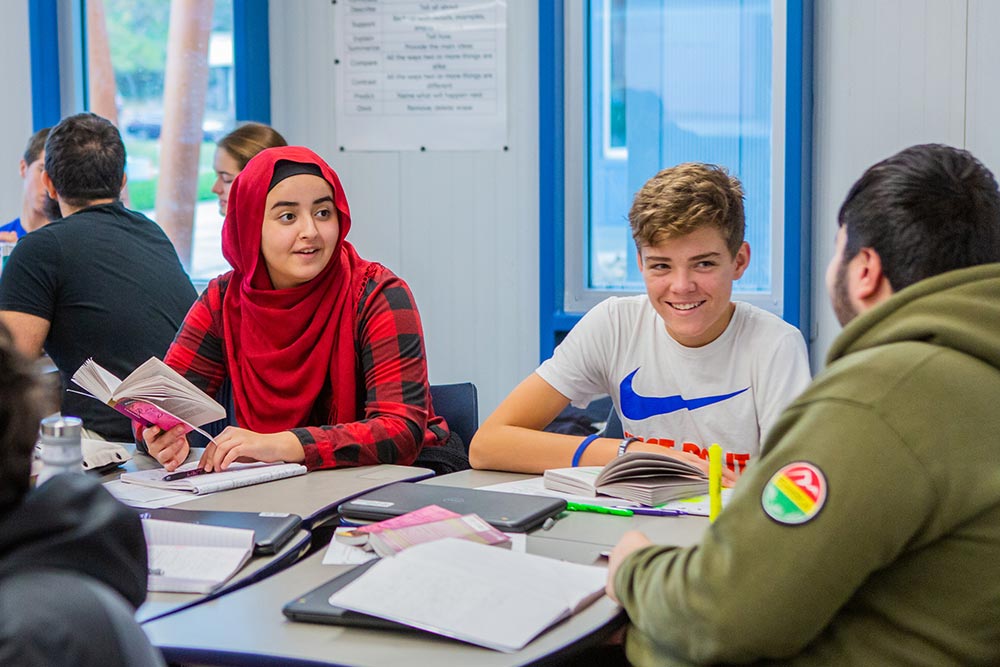
In many contexts, the expectations and opportunities learners experience in school are determined at a young age and are modest for most, high for some, and disproportionately low for others. This is often based on factors connected to a learner’s identity and background like race, income, and gender. Bias when sharing information about advanced courses to learners, less optimism about some learners’ chances of obtaining a four-year degree, and using a less rigorous instructional approach with some learners based on beliefs about their ability to learn are just some of the ways unequal expectations and opportunities show up at school. However, to truly achieve outcomes that are not determined by birth or class, all learners must experience high expectations and have access to all the opportunities that could enable them to progress toward their aspirations for themselves, their families, and the community.

The expectations schools hold for young people, and the opportunities schools provide, can influence motivation and learning outcomes, help address long-standing inequalities, and set learners up for success later in life. Experiencing high expectations can boost learners’ beliefs about themselves, including their self-concept, self-efficacy, and sense of belonging. It can also help to mediate against identity threats young people may feel due to stereotypes and bias. Additionally, having a broad range of learning opportunities allows learners to explore different pathways and passions. When all young people are held to high expectations and given rigorous, unlimited opportunities to learn, they are able to make more progress and succeed. This, in turn, helps ensure that all learners are prepared for college, career, and beyond.
This Leap Means…
- Learners experiencing teachers, leaders, and other adults who deeply believe in all learners’ ability to achieve at high levels without bias.
- Learners persisting when work gets hard and using the support available (e.g., resources, peers, mentors) to help them keep trying.
- Learners having access to all of the opportunities their school offers.
- Learners having opportunities to try again when they have not yet been successful.
It seems it is not students’ ability that determines achievement, but rather their teachers’ expectations, and associated attitudes and practices. This is great news for teachers – you can make a difference.
The Education Hub
Examples
Adelante Student Services from ARISE High School (Grades 9–12)
Adelante Student Services supports all learners to rise up by aligning academic, behavioral, and social-emotional approaches to ensure that learners and their families are provided integrated and responsive interventions attuned to their specific needs. This multi-tiered system of support, integrated through school-wide structures like Academic Mentorship, Advisory, and Restorative Justice Praxis, ensures that all young people can fully engage in learning, are held to high standards, and are supported in achieving that level of success.

Integrated Literacy Model from AIM Institute for Learning & Research (Grades K–12)
AIM’s Integrated Literacy Model is a comprehensive framework designed to improve literacy outcomes for learners of all abilities by helping teachers understand the science of reading and how to translate research into effective practices. Through the consistent application of the framework’s components—including assessment, oral language, and word recognition—across the school day, all learners are supported to achieve literacy proficiency.

National Education Equity Lab (Grades 10–12)
Ed Equity Lab provides access to college credit-bearing courses from top universities to level the playing field for high-achieving learners from historically underserved communities. Through practices like Discussion Sections, near-peer mentorship, and a cohort of peers, this model supports all learners to experience high expectations and have equitable access to opportunities by enabling them to earn college credits, ultimately building their college-going skills and making college more accessible and affordable.

The Calculus Project (Grades 7–12)
The Calculus Project works to accelerate mathematics learning for learners furthest from opportunity, beginning in middle school, in order to give them access to higher-level mathematics courses in high school and college. The model accelerates learning by pre-teaching math content to learners over the summer and providing continued support throughout the year to ensure that they are successful in their math coursework and on track to enroll in AP math courses in high school.


